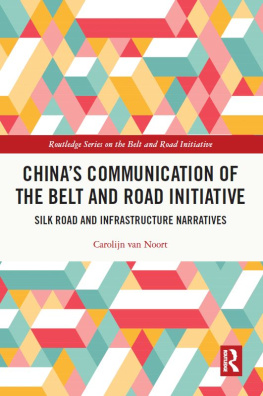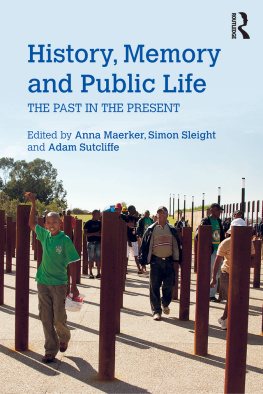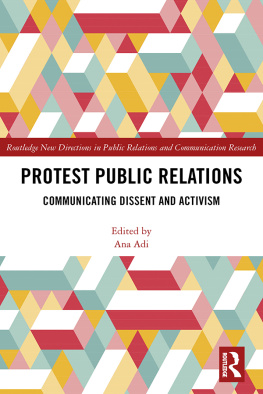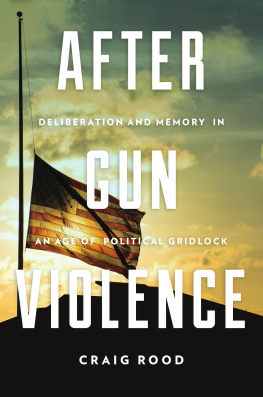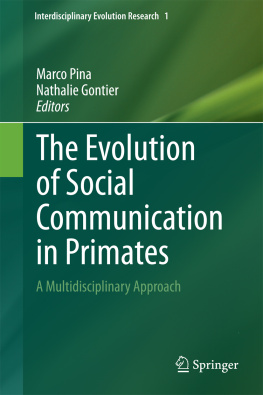Christoph Cornelissen, Marco Mondini
The Mediatization of War and Peace
Studies in Early Modern and Contemporary European History
Volume
Christoph Cornelissen, Marco Mondini
The Mediatization of War and Peace
The Role of the Media in Political Communication, Narratives, and Public Memory (1914-1939)
ISBN 9783110707366
e-ISBN (PDF) 9783110707373
e-ISBN (EPUB) 9783110707397
Bibliographic information published by the Deutsche Nationalbibliothek
The Deutsche Nationalbibliothek lists this publication in the Deutsche Nationalbibliografie; detailed bibliographic data are available on the Internet at http://dnb.dnb.de.
2021 Walter de Gruyter GmbH, Berlin/Boston
On the Mediatization of War and Peace since 1918/19
Christoph Cornelissen
Marco Mondini
Introductory remarks
During the First World War, the modern mass media achieved an enormous and continuously growing importance in all belligerent countries. Established media like newspapers and illustrated magazines, pamphlets, posters, and postcards began to thrive in a measure unknown before 1914. At the same time, the more recent forms of media (like photography and cinema) expanded quickly, becoming the new theater of imagery for a mass public. However, major segments of the urban as well as the rural populations continued to consult the periodical press in greater numbers than ever before, which rapidly resulted in a veritable paper barrage. On the French market this meant, for example, that the sale of newspapers doubled. Here the Petit Parisien reached one and a half million copies sold every day, and also the Matin printed roughly one million copies a day. Generally, however, the total number of newspapers decreased due to the introduction of strict censorship, whereas the circulation figures continued to rise steeply. In many other respects, the First World War brought on a media revolution. Thus, it was the first conflict to be photographed in detail by all the participants and the first one in which photography was actively exploited and controlled in support of the war effort. In parallel, the newsreel became an increasingly popular source of information, not only in the German Reich but also in other countries, and cinemas at the military fronts began to attract audiences by the thousands on all sides. All of these endeavors can be rounded out by aesthetic representations in the visual arts, furthermore by countless musical and theatrical ventures, many of which were exploited for the war effort by the belligerent powers.
The media during the war and the mediatization of warfare
Right from the outset, the war triggered a boundless mediatization propelled by the unprecedented development of networks of communication and information. The beginnings of these changes, which were to become so decisive for the mediatic history of the war and its aftermath, can be traced back to the first stages of the battles when both established and new media began engendering patriotic enthusiasm. It was exactly this motive that guided the president of the Italian press association, Salvatore Barzilai, when he placed his institution at the service of the government on the day his country entered the war. Moreover, this seemingly spontaneous act of self-mobilization in the name of patriotic interest proved to be a common characteristic all over Europe. Thus, the war transformed both old and new media into weapons, which helped many people socially and psychologically to endure manifold emergencies on the one hand, while on the other hand military planners harnessed the power of the media to close the ranks of the nation against all putative enemies. In this sense, the German Kaiser had publicly announced as early as August 6, 1914: We will end this war victoriously against a world of enemies. To achieve this, he needed the media, and the same holds for the political and military leaders of all the other belligerent countries.
For obvious reasons this constellation led to many concessions by the media makers towards their leadership. Overall, the different media genres played a considerable part in insulating millions of European men and women from an event that involved unprecedented levels of social hardship and personal suffering, both on the military and home fronts. But more generally, it can also be said that the mass media experienced the First World War as a highly duplicitous event. On the one side, they increasingly became the object of state control, which was executed by all kinds of agencies (propaganda offices, communication committees, military, and civil press staff, and of course censorship offices). On the other hand, most of the key players of the media world of the time enthusiastically endorsed their role as myth makers, although this could engender a series of conflicts. Thus, the editors in chief of the major national newspapers more or less willingly accepted the strict limits imposed by censorship, whereas their prominent reporters or embedded journalists at the military fronts often tried to bypass these regulations. Furthermore, the newly established film studios met with generous financial support from governments or the military leadership. This situation turned the media into patriotic agencies that were meant to implement and to bolster the widespread social consensus of the early months of the war. At the same time, these agencies were regarded as instruments to create an acceptable and optimistic narrative of current events. In other words, their aim consisted in banalizing the war experience, to quote a phrase by George Mosse. Furthermore, the media did their bit to strengthen the popularity of military leaders and to build tacit consent between the wider public and its military leaders. It might even be possible to claim that the decisions on how the war was carried out or when a standstill was called hinged to a conservable extent on the influence of the mass media.
At the same time, the relationship between the media and governments remained highly ambivalent. Thus, they became instrumentalized by the authorities in a process that transformed the Great War not into the first media war, which had happened already during the Crimean War, but into the first mediatized war in history. One of its precursors might already be identified in the Russo-Japanese War. But according to Andrew Hoskins and Ben OLoughlins definition, only the First World War can be understood as the first of a new set of paradigms in which the mediatization makes possible more diffuse causal relations between action and effect, creating greater uncertainty for policymakers in the conduct of war. It cannot come as a surprise, therefore, that governments quickly came to appreciate the necessity not only of military and economic mobilization but also of the national mobilization of the masses. This meant that all those in responsible political and military positions sought to stimulate and control opinion and morale (civil as well as military) to a degree and in hitherto inconceivable ways. To achieve this aim, they turned to the media. This can partly be attributed to the challenges of a military confrontation which mobilized hundreds of thousands of soldiers, many of whom stayed away from their homes for years. Apart from their first-hand experiences at the military fronts and letters from their families and friends, their knowledge of the war depended on the restricted access to media granted to them by their military leaders. The same can be said of the populations whom the soldiers had left behind at their respective home fronts. In their case, the media did all they could to draw positive images of an imagined war which was bound to end with a victory.


